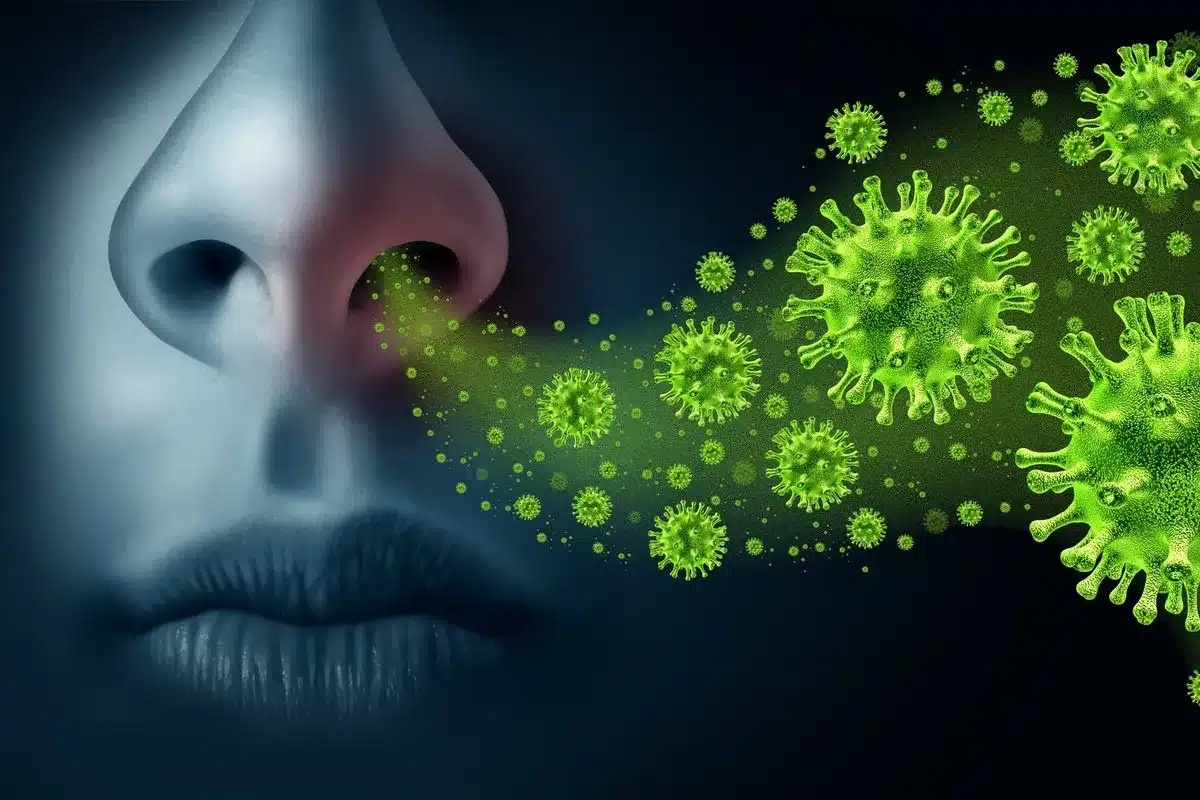While common GI issues get a lot of attention, there are many lesser-known ones that are becoming a big problem of symptoms of digestive worldwide. Conditions like eosinophilic gastroenteritis, Hirschsprung’s disease, and short bowel syndrome affect less than 200,000 people in the U.S. They are hard to diagnose and treat.

We, as a leading healthcare provider, are working hard to find new ways to diagnose and treat these rare conditions. We know how hard it is to deal with the complex symptoms of digestive of these disorders. Our goal is to give our patients the best care possible, with all the support and guidance they need.
It’s important to know the 10 signs of an unhealthy gut so we can act fast. We want to make sure our patients have the right care and resources to manage their conditions well.
Key Takeaways
- Rare GI disorders affect fewer than 200,000 people in the U.S.
- Conditions like eosinophilic gastroenteritis and Hirschsprung’s disease are complex and challenging to diagnose.
- Early diagnosis and innovative treatment are crucial for managing these conditions.
- Comprehensive support and guidance are essential for patients with rare GI disorders.
- Understanding the signs of an unhealthy gut is vital for timely intervention.
Understanding Rare Gastrointestinal Conditions
It’s key to understand rare gastrointestinal conditions to help patients. These complex disorders can greatly affect a person’s life. Getting the right diagnosis quickly is very important.
The Challenge of Diagnosing Uncommon GI Disorders
Finding the right diagnosis for rare GI disorders is hard. Symptoms can be similar to common problems. Experts say, “A thorough evaluation, including endoscopy and biopsy, is needed.” More research shows that late diagnosis can cause a lot of pain and problems.
These conditions need a detailed approach. This includes a full medical history, advanced tests, and sometimes genetic testing. This helps find the exact condition.
The Growing Impact of Rare GI Conditions
Rare GI conditions are becoming more common and costly. Studies show the global market for treating these diseases is growing. This is due to new treatments and medicines.
Early signs of gastrointestinal disease can be hard to spot. It’s up to doctors to think about rare GI conditions. This can lead to better care and less suffering.
“Rare diseases, including GI conditions, are often chronic, progressive, and life-threatening, requiring a multidisciplinary approach to management.”
We need to spread the word about rare GI conditions. This will help doctors and people know more. It will lead to quicker and better treatment.
Common Symptoms of Digestive Disorders That May Indicate Rare Conditions
Digestive troubles can show up in many ways, some hinting at rare conditions. We see patients every day with symptoms that might point to complex issues. It’s key to spot these signs early to help them get the right care.

Warning Signs That Differentiate Common from Rare GI Issues
Common issues like bloating, stomach pain, and bowel changes are common. But, some signs might mean a rare GI problem. Persistent and severe symptoms that don’t get better with usual treatments are a red flag. For example, chronic diarrhea or severe constipation lasting a long time could be a sign of something rare.
Other signs to watch for include unintentional weight loss, vomiting blood, or severe abdominal pain that wakes you up at night. These symptoms need a detailed check to see if they’re from a rare condition like eosinophilic gastroenteritis or chronic intestinal pseudo-obstruction.
When to Seek Specialized Evaluation for Persistent Symptoms
If you’re dealing with ongoing GI issues, see a specialist if they don’t go away in a few weeks or if they’re really bad. A gastroenterologist can do a full check, including tests, symptoms of digestive to find out what’s causing your symptoms.
- Symptoms that persist or get worse over time
- Presence of blood in stool or vomit
- Severe abdominal pain
- Significant unintentional weight loss
Spotting rare GI disorders early and treating them right can make a big difference. We aim to offer top-notch healthcare with full support for international patients.
Lesser-Known Inflammatory and Motility GI Disorders
There are many lesser-known GI disorders that can really affect a person’s life. These conditions are hard to diagnose and treat. They need a detailed and specialized approach.

Eosinophilic Gastroenteritis: An Allergic Inflammatory Condition
Eosinophilic gastroenteritis is an allergic reaction in the GI tract. It causes stomach pain, nausea, and vomiting. Early diagnosis is crucial to avoid serious problems and help patients get better. symptoms of digestive
We use endoscopy, biopsy, and imaging to find this condition. symptoms of digestive Treatment includes changing diets, using corticosteroids, and other medicines. By knowing what causes it, we can make treatment plans that work better.
Achalasia: When the Esophagus Fails to Relax
Achalasia is a rare problem with the esophagus. The lower esophageal sphincter doesn’t relax, making it hard to swallow. Symptoms are trouble swallowing, regurgitation, and chest pain. Prompt diagnosis is essential to stop malnutrition and other issues.
We use barium swallow studies, esophageal manometry, and endoscopy to diagnose achalasia. Treatment includes pneumatic dilation, botulinum toxin, and surgery. Knowing how achalasia works helps us find better treatments.
Cyclic Vomiting Syndrome: Mysterious Episodes of Severe Nausea
Cyclic vomiting syndrome is a rare disorder. It causes severe nausea and vomiting, along with stomach pain and headaches. Identifying triggers is key to managing it. We help patients find what triggers their episodes and how to avoid them.
Treatment includes anti-nausea meds, pain control, and lifestyle changes. By understanding what causes cyclic vomiting syndrome, we can make treatment plans that work for each patient.
Chronic Intestinal Pseudo-Obstruction: Mimicking a Blockage
Chronic intestinal pseudo-obstruction is a rare motility disorder. It looks like a bowel obstruction, with symptoms like stomach pain, nausea, and vomiting. Accurate diagnosis is critical to avoid unnecessary surgery and improve outcomes.
We use imaging, motility tests, and endoscopy to diagnose it. Treatment includes medicines, nutrition support, and lifestyle changes. By knowing what causes it, we can find effective treatments to improve GI function.
Rare Congenital and Structural GI Disorders
Rare GI disorders need special care. They can affect someone’s life a lot. We aim to give the best care for these complex issues.
Hirschsprung’s Disease: Missing Nerve Cells in the Colon
Hirschsprung’s disease means no nerve cells in the colon. This causes big problems with bowel movements. It shows up in babies but can be found later too.
Early diagnosis and surgery are key to handling it well.
We use top-notch tests to find Hirschsprung’s disease. These include biopsies and scans. Surgery removes the bad part of the colon. Then, we fix the colon to work right again.
Short Bowel Syndrome: Challenges of Insufficient Intestinal Length
Short bowel syndrome happens when a big part of the small intestine is missing. This makes it hard to absorb nutrients. It can come from surgery, birth defects, or diseases.
People with this syndrome need special nutrition and diets. We help create plans that fit each person. This might include surgery to help the intestine work better.
Dealing with rare GI disorders needs a team effort. Our team includes doctors, surgeons, and nutritionists. At our place, we focus on caring for each patient with a personal touch.
Conclusion: The Future of Rare GI Disorder Management
Rare gastrointestinal disorders are a big challenge for both patients and doctors. It’s key to spot the symptoms of digestive issues early. This helps in getting the right treatment fast.
Knowing the 10 signs of an unhealthy gut helps people get help quickly. This can stop digestive issues from getting worse.
We aim to give top-notch care and support to those with rare GI disorders. symptoms of digestive. Our mission is to offer new treatments and help patients from all over. We want to make life better for those dealing with these conditions.
We’re dedicated to giving each patient the care they need. We’ll keep funding research and teaching. This way, our patients will get the best care possible.
Together, we can change lives for the better. We’re all in this to help those with rare GI disorders.
FAQ
What are the early signs of gastrointestinal disease?
Early signs include persistent abdominal pain and chronic diarrhea. Severe constipation and difficulty swallowing are also signs. If you notice these symptoms, get medical help right away.
How do I know if I have a digestive disorder?
Persistent digestive troubles like bloating and gas might mean you have a disorder. Talk to a healthcare professional for a diagnosis and treatment plan.
What are the symptoms of bad gut health?
Bad gut health can cause abdominal pain and diarrhea. It can also lead to fatigue, skin issues, and joint pain. Keeping your gut healthy is key to your overall well-being.
What are the 10 signs of an unhealthy gut?
Signs include persistent digestive issues and bloating. Gas, abdominal pain, and fatigue are also symptoms. Skin problems, joint pain, and increased illness risk are other signs. If you see these, get medical help.
How are rare GI disorders diagnosed?
Diagnosing rare GI disorders involves a detailed evaluation. This includes medical history, physical exam, and lab tests. Imaging studies and specialized tests like endoscopy might be needed.
What are the treatment options for rare GI conditions?
Treatment varies by condition and severity. It can include medications, lifestyle changes, and dietary adjustments. symptoms of digestive. In some cases, surgery is necessary. We provide comprehensive care for complex GI disorders.
Can rare GI disorders be managed effectively?
Yes, with the right diagnosis and treatment, many can be managed. Our team is dedicated to providing top-notch healthcare and support for these complex conditions.
How can I find a specialist for my GI problems?
Ask your primary care doctor for a referral or search online for a gastroenterologist. We offer specialized care and support for complex GI disorders.
What are the benefits of seeking specialized care for GI disorders?
Specialized care offers accurate diagnosis and effective treatment. It improves your quality of life. Our team is committed to delivering comprehensive care and support for complex GI conditions.
References :
- Humes, D. J., & Simpson, J. (2006). Acute appendicitis. BMJ, 333(7567), 530-534. https://www.bmj.com/content/333/7567/530
- Sartelli, M., Baiocchi, G. L., Di Saverio, S., Coccolini, F., & et al. (2020). Prospective observational study on acute appendicitis worldwide (POSAW). World Journal of Emergency Surgery, 15(1), 13. https://pubmed.ncbi.nlm.nih.gov/32050633/
- National Institute for Health and Care Excellence (NICE). (2019). Appendicitis. Clinical guideline [CG193]. https://www.nice.org.uk/guidance/cg193








